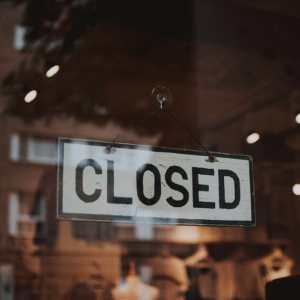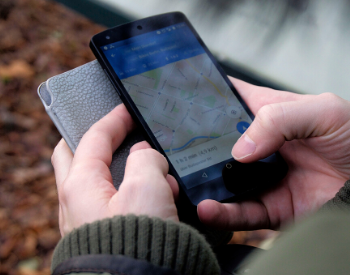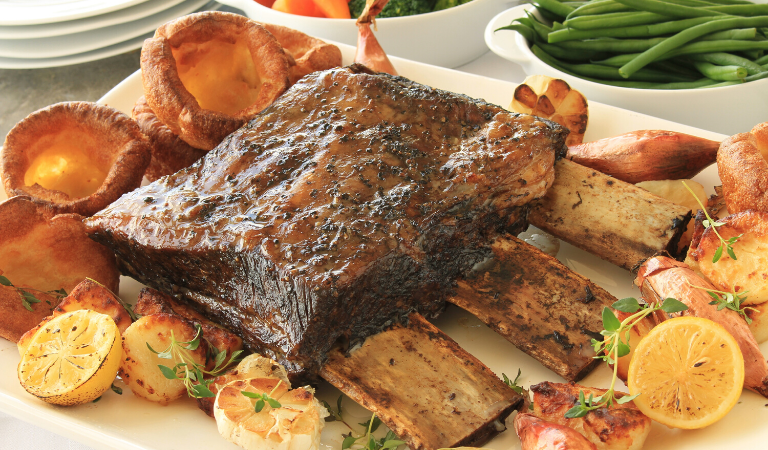Stats Of The Week
The State Of The Industry
The outbreak hit the restaurant industry just as it picked up for the year: with a roughly 4% increase in sales year over year for the months of January and February. In a typical year, March sees 12% higher sales than February, but now preliminary projections for March predict a 31% and 48% decline, according to research done by Technomic.
Let’s Compare
According to research done by McKinsey Global Institute comparing the effect of COVID-19 on multiple industries, foodservice jobs have become the most at-risk occupations with an estimated 13.4 million vulnerable jobs. The food and beverage industry is followed by customer service and sales at almost 11 million and office support at almost 8 million.
RW Poll Results
This week we asked our social media followers the same set of questions that we asked 4 weeks ago when the economic effects of the pandemic were just taking hold. 93% of Restaurantware’s followers report that restaurants in their state are closed for dine-in service, as compared to 54% in mid-March. In the past 4 weeks, Restaurantware followers report seeing a 10% decline in take out and delivery business. When asked if their establishments are running promotions to increase sales, 64% said “yes” compared to just 43% earlier this month.
Looking ahead to which concepts should stick around after COVID-19, 84% of respondents think restaurants should still be allowed to sell beer and wine to go and 87% think restaurants will continue offering DIY meal kits.
What’s Trending
San Francisco Limits Third-Party Commission Fees
San Francisco has become the first city in the U.S. to put a limit on third-party delivery commission fees at 15%. The mandate will be in effect as long as the city’s state of emergency is in place or until restaurants can open up dine-in operations. This order is intended to help independent operators stay afloat as every dollar helps to stay open during the COVID-19 pandemic. No other cities have enacted similar orders, but officials in New York City are urging the state’s governor and mayor to follow suit and impose restrictions on third-party commissions at 10%.
Google Maps Offers A Helping Hand
Google Maps has added a new app feature that highlights which restaurants near you are offering take out and delivery services. This new feature helps call attention to restaurants that customers would otherwise not know of or weren’t aware were offering a food delivery program. One of the main benefits of the feature is that it directs customers to a restaurant’s website. This initiative pushes customers' orders directly to restaurants and bypasses third-party delivery apps and their accompanying commission fees.
Chain Restaurants Feel The Stress
During the coronavirus crisis, chain operators have become just as vulnerable to closure as independent operators. 20,000 to 30,000 franchisees will lose all liquidity in the next month if they don’t receive immediate relief, according to the International Franchise Association. On top of other financial burdens, many franchise operators are now required to offer paid sick leave to employees and be responsible for those expenses on their own. The operators that seem to have the best chance of surviving are ones with robust drive-thrus and off-premise operations, such as Domino’s and Papa John’s.
To-Go Restaurants Are The New Grocery Stores
For weeks now, independent restaurants have been selling produce, dairy products, and other groceries as a way to create another stream of income. Now, large chains have hopped on the trend and started to sell their own perishable items. Panera introduced Panera Grocery selling pantry items alongside their menu items such as bagels, yogurts, and avocados. Subway now offers Subway Grocery in select restaurants that sells bread, meat, and eggs. The goal of these grocery programs is to increase off-premise sales and retain more hourly and salaried employees.
Restaurants Celebrate Easter & Passover During A Pandemic
Social distancing has not stopped holiday celebrations. Restaurants have pivoted to create special meal
offerings while adhering to lockdown guidelines. For Passover and Easter, many restaurants created a set
take out menu that offered large entrees and multiple sides intended to feed a large group. For example,
Boston Market created a special which offered a choice of entrees, plus three sides, cornbread, and a
whole apple pie for $39.99. Buca di Beppo crafted a set menu that cost $11 per person. Restaurants are
implementing these same tactics for the next upcoming holiday, Mother’s Day, which is notoriously known
for being the highest-selling day of the year.
Bright Spots In A COVID-19 World
Reply All Exposed A Moment Of Humanity
One of Seattle’s most popular fine dining restaurants, Canlis, emails customers instructions on how to appropriately heat up their orders. Last Friday, one of their employees made the minor mistake of not putting everyone on BCC. With almost 400 people on the thread, someone was bound to hit “reply all”. That person was an unhappy customer, upset that Canlis’ orders needed to be heated at home, accidentally sharing his disappointment with the entire email thread. In contrast, other customers chimed in with positive messages. As they shared their excitement to receive their orders, an idea was born: donating the price of the meal to Feeding America. The idea caught on. By the end of the day, the entire thread had donated up to $10,000 with Canlis adding in a donation of $500.
Unemployed Restaurant Workers Find New Jobs In New Industries
With 60% of jobs lost last month coming from the restaurant industry, millions of workers have sought new employment in unexpected industries. Divurgent, a healthcare consulting company, needed 250 workers to staff a virtual call center. The Senior VP of Divurgent, Ralph Whalen, turned to his sister Emery Whalen, the co-owner of QED Hospitality, to hire employees the hospitality group had laid off. Those employees have become customer service agents where they are able to work from home and earn equal wages to their previous restaurant positions. In Miami, Sedano’s, a Hispanic grocery chain, needed 400 new employees to keep up with the increased store traffic. The supermarket sought out employees from popular Miami restaurants, Versailles and La Carreta, who had been forced to lay off their staff members due to the pandemic.
A Quote Of Hope
“This collaboration reflects who we are as companies in our community. During difficult times, local businesses and communities need to support one another,” Javier Herran, CMO of Sedano’s Supermarkets, said.








